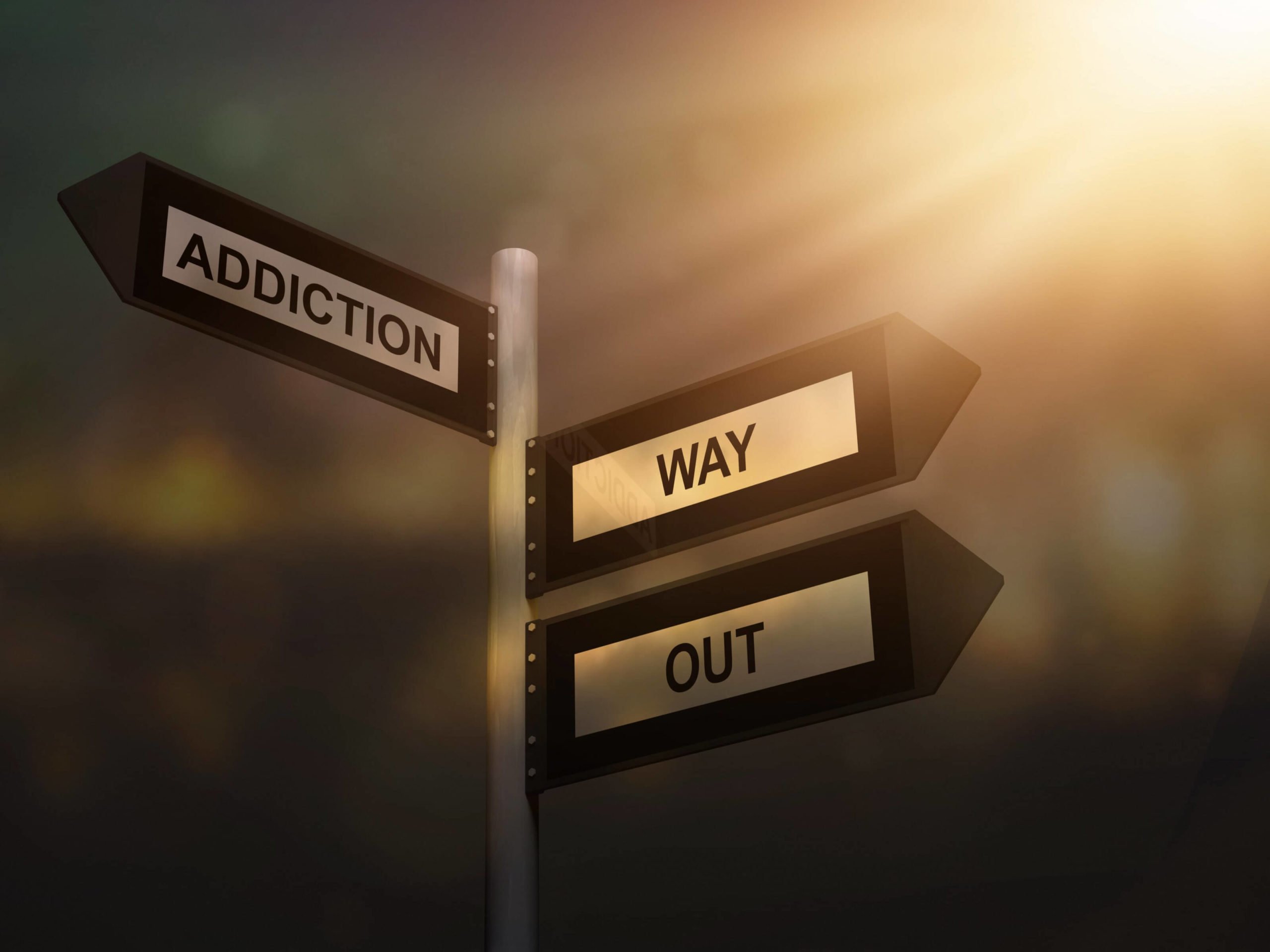EMDR can help you uncover the root causes of your substance use, decrease your reliance on addictive substances, and help you accomplish and maintain your goal of long-term recovery.
Continue readingWhat Leading Treatment Programs Have in Common
There are more than 14,500 drug and alcohol rehabilitation centers in the United States. Even though all rehab centers can potentially help you overcome addiction, not every drug and alcohol treatment center is the same. Let’s explore what the nation’s leading rehabilitation centers have in common.
What to Look For in A Rehab Center
Wide Range of Recovery Services
Addiction is a complicated disease and there’s no one-size-fits-all treatment recovery plan. That’s why leading treatment centers offer a wide range of recovery services and customizable treatment plans. Here at Soba Recovery, we provide detoxification, residential inpatient, partial hospitalization, intensive outpatient, outpatient, sober living, and aftercare services. We also take our clients’ unique addiction challenges and circumstances into account when developing an individualized treatment plan. Many rehab facilities provide therapy, individual counseling, and medication, but leading treatment centers will have a wide variety of recovery services in order to meet your specific recovery needs.
Evidence-Based Treatment Methods
The most successful treatment programs rely on evidence-based treatment methods. This means that leading treatment programs incorporate therapies, peer support methods, sober activities, and lifestyle changes that are effective and backed by years of research and studies. If the treatments have worked for other individuals, the method is more likely to work for you! Some of the most common evidence-based approaches for addiction recovery include:
- Medically supervised detox
- Individual and group counseling
- Behavioral therapies such as cognitive behavioral therapy (CBT), dialectical behavioral therapy (DBT), motivational interviewing (MI), family therapy, contingency management, 12-step facilitation therapy, community reinforcement approach (CRA), and eye movement desensitization and reprocessing (EMDR).
- Lifestyle changes such as exercise and nutrition
- Interactive journaling
A Focus on Underlying Issues
The nation’s leading recovery programs address underlying issues such as mental health challenges, traumatic stress, and emotional and psychological pain. Without addressing these issues, recovering addicts are much more likely to relapse. Underlying issues can be addressed in group or individual counseling, other forms of therapy, or in a dedicated dual diagnosis program that treats mental health and substance use disorders simultaneously.
A Focus on Overall Health
Leading drug and alcohol recovery programs also focus on individuals’ overall health. Truly recovering from drug and alcohol addiction requires so much more than abstinence from addictive substances. You also have to develop healthier habits. The best rehab centers will help you improve your overall health by incorporating physical fitness and a balanced, nutritious diet into your recovery treatment plan. Good rehab centers help you get off drugs, while the best treatment centers will help change your life.
Strong Ongoing & Aftercare Support Options
Recovery doesn’t end when individuals complete a treatment program. That’s why the best recovery centers provide extensive, ongoing support. Some of the most common examples of aftercare support include:
- 12-step programs and peer support groups
- Ongoing counseling and therapy
- Family counseling and education
- Relapse prevention programs
- Outpatient treatment or post-treatment programs
- Sober living homes
- Vocational support
Dedicate, Compassionate, and Licensed Staff
Top-rated treatment programs also have dedicated, compassionate, and licensed staff members. These individuals are the people who will interact with you on a daily basis. They’ll check your vitals, monitor your health, facilitate your therapy, help keep you motivated, assess your progress, and connect you with aftercare, sober living, and vocational support. At Soba Recovery, we employ compassionate staff members that are passionate about helping you obtain long-term recovery.
Receive Treatment at A Leading Recovery Program in Arizona and Texas
At Soba Recovery, we offer a wide range of treatment programs that incorporate a variety of evidence-based treatment methods to help restore individuals’ physical, emotional, and mental health. We also work to resolve any underlying issues that may have contributed to our clients’ addiction challenges. Recovery is possible. We can help you get there. Contact us today if you want to learn more.
Can You Stop Drinking Permanently?
Even though drinking is one of the most accepted social activities in America, alcohol remains one of the world’s most addictive substances. In 2019, 14.5 million Americans over the age of 12 had an alcohol use disorder. Grappling with alcohol addiction challenges can make you feel like you’ll never be able to permanently stop drinking. Your brain, which has become accustomed to alcohol as a primary source of pleasure, tricks you into thinking that you need to drink in order to feel and function well. That’s not true. You don’t need alcohol to overcome pain, deal with stress, and feel good. In fact, you don’t need alcohol at all. Alcoholism is a treatable condition and long-term sobriety is possible. With the help of recovery centers like Soba, you can even stop drinking permanently.
Practical Ways to Give Up Alcohol For Good
Addiction damages areas of the brain that help regulate your choices. Luckily, the brain is plastic, meaning it is capable of changing and developing new habits. Here are a few practical tips that can help you give up alcohol forever.
1. Understand Your Relationship with Alcohol
Knowing why you drink is an essential part of treating alcohol addiction. Oftentimes, stress, relationship problems, trauma, insomnia, anxiety, boredom, and mental health issues are some of the most common reasons individuals drink. Luckily, enrolling in a rehabilitation program and undergoing behavioral therapy can help you understand your relationship with alcohol, avoid triggers, and find healthier ways to address those issues.
2. Make Your Intentions Known
Tell family members, friends, and even coworkers that you’re giving up alcohol permanently and explain why. If they understand why you’ve decided to stop drinking, they can help support your sobriety and hold you accountable. Reminding yourself and people close to you of the reasons why you want to quit alcohol can help you stay sober.
3. Avoid Temptations
If you’re serious about giving up alcohol, you’re going to need to avoid situations where you may be tempted to drink, especially during the earlier stages of your recovery. You may need to avoid pubs and go to restaurants that don’t sell alcohol. You should also identify times of the day when you would usually drink and fill that part of the day with a healthier activity instead.
4. Practice Meditation and Mindfulness
Meditating and practicing mindfulness can help rewire the parts of the brain negatively impacted by addiction. Meditation can increase the neural density and functionality of the prefrontal cortex, the brain’s happiness center, retraining the brain to experience pleasure without alcohol. Meditation and mindfulness can also make you less vulnerable to stress and help you “urge surf,” or better resist waves of alcohol cravings.
5. Reward Your Progress
Rewarding yourself for not drinking can help you stay motivated and maintain positive change. Begin by rewarding yourself for alcohol-free weeks. You can take a road trip or treat yourself to some new clothes and gadgets with the money you’re saving on alcohol. As you become more comfortable with your sobriety, you can reward yourself for an alcohol-free month and so on.
Helping You Change Your Life for The Better
At Soba Recovery, we care about your recovery. Our multiphase addiction treatment program combines evidence-based therapies with additional wellness treatments like yoga, meditation, chiropractic care, nutrition, and acupuncture. Alcohol doesn’t have to dictate your life. You can stop drinking permanently and we can help you get there. Contact us today if you or a loved one have an addiction to alcohol.
The Benefits of Meditation for Addiction Recovery
Addiction recovery for most people comes with its own challenges. It can be stressful particularly if you are new to recovery as you will have to deal with constant cravings, cleaning up your addiction wreckage, and rebuilding relationships, all while trying to hang on to your new life in sobriety. Most parts of early recovery involve training you on how to cope with life struggles as a new way of dealing with addiction now that drug or alcohol use is no longer your option.
Doctors have to employ a wide range of skills and techniques to develop a personalized, well-rounded treatment plan. A great example of these techniques is meditation. If you just started your recovery journey or have been sober for a while but still struggle with addiction, consider practicing meditation to help you deal with depression, anxiety, and stress.
What Is Meditation?
Meditation is an alternative approach to addiction recovery that focuses on mind and body concentration with the goal of inducing relaxation and serenity. Meditation involves being mindful of your feelings, thoughts, and sensory experiences in the present surrounding. There are many ways of meditating, and methods differ based on the individual. It can be done in groups, alone, in silence, or with music and in a calm, serene area.
You also do not need to set timers to meditate. If you are a beginner, you can start meditating for a few minutes and work yourself up to longer sessions. You also do not need to be spiritual to participate – it is not a prayer session.
How Is It Useful in Addiction Recovery?
Meditation carries a significant value for individuals recovering from addiction to drugs and alcoholism. Generally, meditation promotes a sense of inner peace and calmness, improves mental health functioning, increases self -awareness and helps detect impulses and thoughts that make you have cravings, hence preventing relapses.
Improves self-esteem and acceptance
You are more likely to be harsh on yourself than on others, especially when you are on your journey to addiction recovery. Being mindful in meditation encourages attentiveness and observation of your feelings and thoughts, making it easier to be patient with yourself. After a few meditation sessions, you will be able to treat yourself better with the same acceptance and patience that you would likely extend to others in similar situations.
Improved mental and physical health
Meditation is not only good for your mental health but also excellent for physical fitness. When you develop self-awareness through meditation, you are likely to experience a positive impact on your anxiety and stress levels, which can significantly reduce the chances of developing medical-related illnesses like hypertension and heart problems. It has also been found to improve sleep quality.
Increases attention and resilience
Being mindful means not dwelling in the past or worrying about the future, but concentrating on the present. Mindful meditation helps you enjoy the current moment without getting distracted by the situation around you. People who practice meditation as a way of assisting them to cope with the symptoms of addiction recovery are known to be resilient. They have the power to bounce back even after a challenging situation, adapt to the new changes around them, and enjoy their new life in sobriety.
Tips to Get You Started
If you have never practiced meditation before, you may find it strange at first, but when you learn to be mindful and aware of your senses, thoughts, and feelings, you will reap wholesomely the rewards that come along with it. The practice will help you in your recovery journey and throughout your new life. You don’t need to be a pro to start meditating; you can begin with simple meditative exercises as you learn which ones work best for you. Here are a few tips you can use:
- Progressive muscle relaxation: To bring awareness to every part of your body, you need to have your muscles relax from head to toe progressively.
- Breathing practice: Relax and breathe naturally while focusing on inhalation and exhalation.
- Mantra-based: This form of meditation involves repeating a phrase or word out loud or internally. This helps to bring your mind back to meditation in case it wanders, and you lose attention.
- Movement meditation: This involves incorporating physical activities such as hikes, yoga, walking, or surfing while still being mindful of your body movements.
Meditation is a personal treatment plan. That means that what may work for you may not work for someone else. Trying new techniques is the best way to identify which ones work best for you.
Let Us Help You
If you or a loved one is struggling to stay sober, it is essential to seek professional help from a holistic rehabilitation program like Soba Recovery Center. At Soba, we are a certified luxury detox and drug rehab program. Our expert doctors will review your medical history, ask you a few questions about yourself, the substance you have been abusing, and how long you have been abusing it to help us come up with a personalized treatment plan. To learn more about our services and how we can best help you, please contact our recovery support specialists today! We hope to hear from you soon.
Why You Should Get Sober
Drugs and alcohol negatively impact our mind and body. They throw our body off balance, can make us do things we wouldn’t necessarily do when we’re sober, and even though they may make us feel good in the moment, that feeling doesn’t last. One of the reasons you (or someone you know whose addicted to drugs or alcohol) can’t stop using is probably because you’re constantly chasing the high. That ‘feel good’ moment. Unfortunately, we can tell you that you’ll never feel 100% satisfied with getting high. You’re chasing something that can truly never be achieved. No one is going to feel good all the time, that’s just part of life.
Now that we’ve established that we can’t fill an emotional void with drugs or alcohol, let’s talk about getting sober. Trust us when we say, your life will change immensely. The unknown can be scary, especially without the aid of drugs and alcohol, but getting sober is the best thing you can do for yourself and everyone around you.
Why Should You Get Sober?
Whether we want to admit it or not, our actions affect other people. If you drank too much the night before your sibling’s graduation and don’t show up, your sibling will be disappointed. If your friend is counting on you to pick them up from somewhere because they don’t have a car, and you forget because you’re high, they’re going to be disappointed. Being able to rely on others for help or assistance is a fundamental part of modern-day society. If you spend most of your day getting high or drunk, you probably aren’t the most reliable. By getting sober, you can become a dependable friend and family member.
You also deserve to get sober for yourself. Addiction is totally consuming no matter what stage you’re at. Even if you only drink alcohol at night, you’re probably thinking about that first drink you’ll have all day. If you’re addicted to prescription pills, the thought of running out probably looms over your head like a dark rain cloud.
Benefits of Sobriety
Sobriety will improve your quality of life. Some ways your life will change by getting sober are:
- You can reach your professional potential: When you get sober you can think clearly. Your thoughts are no longer hazed by drugs. While you’re getting high, you probably don’t care much about your job. A job is just a means to make money to spend on drugs and alcohol. After you get sober, you’ll see that a job is more than just a way to make money. A job is something you can be passionate about and progress in. Most jobs have goals and milestones set in place for their employees to achieve so they can get promoted and make more money. Sobriety will give you the ability to reach and exceed professional goals.
- You will have a new purpose in life: A big part of sobriety is giving back to others. Becoming sober isn’t easy and it’s definitely something to be proud of. When you get sober you will have the chance to help others start a recovery journey. The knowledge you gain on your own journey can be passed down to others. By doing this you’re probably going to end up saving someone’s life.
- You’ll feel much better physically: Addiction is mentally and physically exhausting. And let’s be real here, you’re probably not going to the gym or meditating when you’re getting high. By getting sober you’re giving yourself a chance to actually feel good (not the temporary getting high good). You’ll sleep better and have more energy to get things done during the day.
If you or anyone you know is struggling, don’t wait to get help. Your life will be so much better when you’re sober.
Let Us Help!
At Soba Recovery, we are excited to be one of the main drug and alcohol treatment services serving the Mesa, AZ and San Antonio, TX areas. Our professionals have an extensive amount of training and experience, allowing them to provide specialized services to patients. Our detox and inpatient treatment services help clients battle addiction and proceed on the road to recovery. Our specialized luxury addiction treatment program leverages proven, traditional treatment methods, and combines them with innovative therapies. The main goal of our program is to help our participants overcome substance abuse permanently. If you would like to learn more about our addiction recovery and treatment program, please contact us today!
What You Should Expect When Making The Choice To Get Sober
Addiction: a commonly heard word that is often misunderstood. Addiction knows no prejudice and can manifest in many ways. Some people may currently be sliding down the path to addiction and not know it. Other people might be stuck in the cycle of drug abuse and addiction with no idea of how to escape.
The first step on the road to recovery is admitting you have a problem and ask for help. We know this is easier said than done. To help you get started, we want to let you know what to expect when deciding to get sober.
What To Expect During Addiction Recovery
Addiction recovery is a challenging and exciting journey for those who have been struggling with drug abuse or alcoholism. It’s normal to be nervous and anxious during this time. Using drugs has become your new normal and facing sobriety, the unknown is scary. Below are a few things you can anticipate on the road to recovery:
- A New Life: One of the first things that everyone should expect during this journey is that there is going to be a new life. In order for people to truly conquer their addiction, they need to figure out the root of the problem and eradicate it. As a result of this, you’ll feel like your entire life has been turned upside down. And that’s ok.
- Better Relationships: You can also expect better and stronger personal relationships. Many of your old relationships with friends will be left behind and that’s also ok. During this process, the bad friends will be weeded out and the good ones will stick by your side during recovery. You’ll also have the opportunity to meet like-minded people who will support your recovery.
- Gratification: Finally, people who make the decision to get sober should also expect a hard but worthwhile challenge. Nobody ever said that beating addiction is easy but you’ll feel a sense of gratification once you achieve it. No one can hand you your sobriety, it’s something you earn on your own. You won’t regret making the decision to get better, find sobriety, and become happy.
How to Get Started on the Journey to Sobriety
If you want to get sober and don’t know where to start, a good first step is admitting you have a problem to someone and asking for help. There are friends and family members who are going to be there no matter what. They’ve been there through the good times and the bad. If you don’t feel like there is someone in your life you can currently lean on, you can turn to a trained treatment center professional. They can answer any questions you have and point you in the direction of the right course of treatment for you.
Allow Us to Help You!
At Soba recovery, we’re a drug and alcohol recovery program that offers treatment from our Soba Mesa rehab center in Mesa, Arizona as well as our Soba Texas rehab center in San Antonio, TX. We’ve expanded our capabilities to ensure we offer both detox and inpatient treatment for addiction. We are here to help people get started on the journey to sobriety. We offer a unique program that combines traditional treatment with modern therapies. We have found that this helps our clients overcome substance abuse for good. Contact us today to learn more about how we can help you!
Are You Thinking About Getting Sober? Then This One Is For You
If you are thinking about getting sober, then you need to check out the story below. Addiction is a serious disease that impacts countless people all over the world. It has a way of slowly, gradually wrapping its claws around someone before it swallows them whole. Often, there is collateral damage that goes right along with addiction. This comes in the form of family members, friends, career problems, and a damaged reputation. Fortunately, when someone makes the decision to get sober, there are major changes that take place in that person’s life. If you are thinking about seeking addiction treatment and trying to find sobriety, it is important to think about the major changes that take place when you seek help for substance abuse.
Your Friendships Are Going to Change
Anyone who spends time drinking or doing drugs inevitably will surround themselves with people who do the same. This is simply the law of attraction. If you drink on a regular basis, you likely hang out with people who do the same. There is a reputation during high school and college that people are more fun when they drink. They call alcohol the social lubricant and it can help people stand out. This is also a nice way to blend in with the crowd.
On the other hand, too much alcohol can destroy someone’s life. People need to be sober. This is where people find meaningful relationships, build a career, and enjoy their family. Therefore, if you make the decision to stop drinking, you are going to find new friends. Some people might be a bit skeptical about your decision to stop drinking entirely; however, those who support you will continue to stand by you. Along the way, you will make new friends as well.
You Will Split Checks More Often
When you drink, you might find that you care more about splitting the checks evenly. When you drink, the bill ends up costing about the same all the way around. Alcohol is expensive and, when everyone drinks, the cost has a way of evening out. When you stop drinking, you will find that you spend way less money.
As a result, when you go out to eat, you are going to care about splitting the check a bit more. You might even find that you are hesitant to fund the alcohol industry. You may develop a moral opposition to this. There is nothing wrong with this. When you make an effort to find sobriety through addiction treatment, your life is going to change. That is what is supposed to happen. You should embrace this.
You Will Find New Hobbies
Those who like to drink tend to go out in the evenings and do exactly that. If you have an addiction to alcohol, you might also spend your days doing this as well. The point of addiction treatment is to find a way to break this habit. This means trying to find the root causes of why you were driven to drink (or use drugs) in the first place. As a result, your hobbies are going to change as well. Instead of spending your time drinking, you are going to spend your time doing other things. Prepare to find new hobbies.
At first, you might find that you are an introvert. You may spend more time doing things like watching Netflix. That is fine. You are learning to branch out and find new hobbies. Over time, as you make new friends and spend time with your family, you might be pushed to try other things. Do this. Embrace it. This is the chance for you to experience life without alcohol.
You Will Be Asked Why You Don’t Drink
Finally, be prepared for this one. People are going to ask you why you don’t drink. After all, most people who don’t go through addiction cannot imagine suffering from it themselves. They think, “that will never happen to me!” You know all too well that addiction can swallow anyone. Therefore, be prepared when people ask you why you don’t drink. At first, you might find this uncomfortable. You may even decline to answer. That’s okay! That is your right. Over time, you will become more comfortable coming to terms with why you can’t drink. This is all a part of the recovery process. Once people understand, they will support your decision. They will even watch out for you. Embrace this support system.
Rely on the Trained Professionals at Soba Recovery
At Soba Recovery, we are a substance abuse, drug, and alcohol treatment program with locations in Mesa, AZ, and San Antonio, TX. We provide professional detox and inpatient treatment for addiction. Contact us today to learn more about how we can help you and your loved ones.
Why Exercise is Important in Sobriety
One of the things mentioned during nearly every addiction recovery program is how important it is to eat right and exercise throughout your sobriety. Not only do these things help get a body that has been beaten down back into shape, but exercise also offers other benefits that can ease cravings and keep you back on track. Let’s take a look at some of these benefits.
The Benefits of Exercise On Addiction Recovery
Exercise Can Provide Structure
- One of the biggest things you learn in addiction recovery is that it helps to have a structure in your days because you need to fill in all that time previously spent imbibing. Joining a class that meets at a specific time, exercising with a group, or even creating your own daily schedule will all add more structure to your life.
Exercise Increases Your Mood
- Exercise causes your brain to release those feel-good chemicals, endorphins. Everyone can benefit from that. In addition, as you watch your ability grow, find yourself walking further in less time, feeling healthier, you will gain pride in yourself that will want you to continue.
Exercise Increases Brain Growth
- This is a scientific reality. While addicted, many pathways in your brain shut down from lack of use. When you exercise, the brain begins to utilize areas of the brain that have been lying quietly. This then helps create more neural pathways that lead to positive thoughts and feelings. Your brain begins to grow and come back alive.
Exercise Reduces Stress and Promotes Sleep
- Think about a time when you were angry or upset and started pacing. At first, you may have been doing so at a very quick pace. As you continued, your steps began to slow, your mind began to clear, and you started to feel calmer. Exercise allows you to work off any negative emotions in a constructive way. As they dissipate, you can replace them with more positive ones. Once the stress is reduced, you can sleep deeper. This helps promote healing and overall rejuvenation of your body and mind.
Exercise Can Decrease Cravings
- In studies, people trying to break free from nicotine addiction have been benefited by exercising through cravings, making quitting easier. This has also been the case with marijuana. While exercising, your mind becomes distracted as you focus on your body and the movements. Exercise helps you practice mindfulness and gives you a way to distract yourself from the cravings until they pass.
Exercise Can Create Connections
- Exercising alone can be boring and that is why many people give up. However, there are many others who will be interested in the same type of exercise you choose. Having this common interest can help you make connections with people that you might not otherwise meet. These will be healthier connections. There are many walking and biking clubs. Simply joining a gym and maybe taking one class is another option. There are even some groups made up of others who are on the same sobriety journey as you. They will have the same interest and understand your journey.
Success Breeds Success
- The more you find yourself improving in your chosen activity, the better you will feel. The better you feel mentally and physically, the more you will want to feel this. Your success will spread throughout all the areas of your life.
Final Thoughts
Exercise doesn’t have to be hours of weight-lifting, running a marathon, or aiming for the Olympics. Your addiction recovery plan will most likely have you start slow. Start a walking routine, join a yoga group, or try Zumba dancing. Whatever gets you moving and causes you to enjoy the time will work. You can do this!









